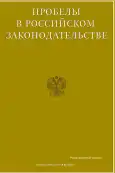The Application of Complex Situational Tasks in Teaching Fighting Techniques to Students of Educational Organizations of the Ministry of the Internal Affairs of the Russian Federation
- Authors: Dadov A.V.1
-
Affiliations:
- North Caucasus Institute for Advanced Studies (branch) of the Krasnodar University of the Ministry of Internal Affairs of Russia
- Issue: Vol 15, No 4 (2022)
- Pages: 95-99
- Section: Articles
- URL: https://journal-vniispk.ru/2072-3164/article/view/147535
- ID: 147535
Cite item
Abstract
Full Text
##article.viewOnOriginalSite##About the authors
Aslan Vladimirovich Dadov
North Caucasus Institute for Advanced Studies (branch) of the Krasnodar University of the Ministry of Internal Affairs of Russia
Email: islam-2604@mail.ru
police captain, Senior Lecturer of the Department of Physical Training Nalchik, Russia
References
- Federal Law “On Police” dated 07.02.2011 No. 3-FZ [Electronic resource] // Access mode: http://www.consultant.ru/document/cons_doc_LAW_110165/ (accessed 14.04.2022).
- Order of the Ministry of Internal Affairs of Russia dated July 1, 2017 No. 450 “On approval of the Manual on the organization of physical training in the internal affairs bodies of the Russian Federation” [Electronic resource] // Access mode: https://www.garant.ru/products/ipo/prime/doc/71647620/ (accessed 04/24/2022).
- Gubzhokov A.Kh. Formation of tactical bases for the use of combat techniques of fighting among police officers in the classroom for physical and professional service training // Education. The science. Scientific personnel. 2020. No. 2. pp. 207-209.
- Gubzhokov A.Kh. Formation of motor skills for the use of combat fighting techniques in physical training classes in educational organizations of the Ministry of Internal Affairs of Russia // Modern science-intensive technologies. 2021. No. 2. pp. 139-143.
- Kodzokov A.Kh. Ways to improve the tactical foundations for the use of combat techniques by students of educational organizations of the Ministry of Internal Affairs of Russia // In the collection: Physical culture and health of modern youth. Materials of the IV International Scientific and Practical Conference. Voronezh, 2021. S. 89-96.
- Krymshokalov A.Z. Optimization of the tactical and technical foundations of fighting techniques among students of educational organizations of the Ministry of Internal Affairs of Russia // Gaps in Russian legislation. 2020. V. 13. No. 4. pp. 177-180.
- Malinovsky A.V., Krasilov O.V., Manannikov S.V. Using the method of situational modeling in the classroom for professional applied physical training in educational organizations of the system of the Ministry of Internal Affairs of Russia // Vestnik ekonomicheskoi bezopasnosti. 2019. No. 3. pp. 384-389.
- Manannikov S.V. Psychological and physical training of police officers in modern conditions // Bulletin of the educational department of the Barnaul Law Institute of the Ministry of Internal Affairs of Russia. 2021. No. 37. pp. 100-102.
- Troyan E.I. Using the situational method for training police officers in the use of self-defense and detention techniques // In the collection: Innovative forms and practical experience in the physical education of children and students. Collection of scientific articles. Editorial Board: P.I. Novitsky (editor-in-chief) [and others]. Vitebsk, 2020. pp. 251-255.
- Troyan E.I., Trusova N.K. Using the situational method to train employees of police security and escort service units to use physical force in typical situations of official activity. Bulletin of the Kaliningrad branch of the St. Petersburg University of the Ministry of Internal Affairs of Russia. 2020. No. 4(62). pp. 31-35.
- Khazhirokov V.A. Limits of the use of physical force by police officers // In the collection: Physical education and sport: topical issues of theory and practice. Collection of materials of the All-Russian scientific-practical conference. 2018. S. 137-140.
- Cherkesov R.M. Efficiency of training in the skills of using fighting techniques in physical training classes // Education. The science. Scientific personnel. 2021. No. 1. pp. 230-232.
Supplementary files








